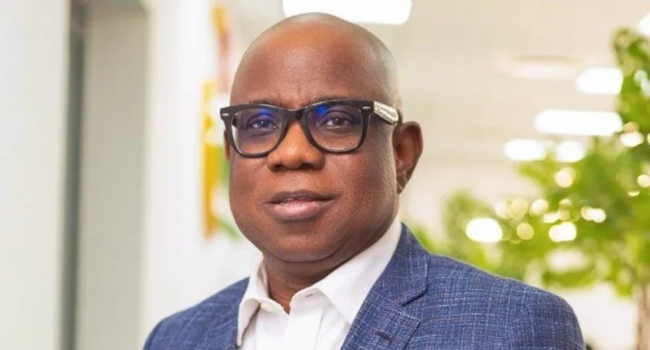At a major energy conference in Lagos, Nigerian National Petroleum Company Limited (NNPCL) CEO Bayo Ojulari highlighted Africa’s urgent need to develop financially viable energy projects to secure a sustainable future. Speaking at the Society of Petroleum Engineers (SPE) Nigeria Annual International Conference, Ojulari emphasized that African nations must not only compete for global investment but also clearly articulate the value of their energy potential to attract capital.
The three-day event, centered on the theme “Building A Sustainable Energy Future: Leveraging Technology, Supply Chain, Human Resources and Policy,” brought together industry leaders to address the continent’s evolving energy challenges. Ojulari, who serves on the SPE Nigerian Council’s board, stressed that governments and stakeholders must collaborate to create investment-friendly frameworks. “Energy transition isn’t just about resources—it’s about people,” he said, underlining the human dimension of shifting to cleaner energy systems.
He called for bold leadership to navigate Africa’s energy transformation, rejecting a one-size-fits-all approach. “The future of energy is not predetermined. It will be shaped by proactive decisions, inclusive policies, and strategic investments,” Ojulari stated. He advocated for recognizing natural gas as a transitional fuel for the continent, arguing that hydrocarbons and renewables must coexist during the shift. His remarks echoed growing regional calls to balance climate goals with developmental needs, particularly in nations where fossil fuels remain critical for economic stability.
Ojulari also urged greater investment in science, technology, engineering, and mathematics (STEM) education, green initiatives, and youth empowerment. “Our energy transition must prioritize people, especially the youth, who will drive innovation,” he added. His appeal aligns with broader efforts to address Africa’s dual challenges of energy poverty and climate vulnerability while harnessing its young, tech-savvy population.
Earlier in the conference, SPE Nigeria Council Chair Amina Danmadami, the first woman to hold the position, reinforced the need for a multidisciplinary strategy to achieve energy sustainability. She highlighted the importance of integrating technology, supply chain efficiency, policy, and workforce development. Danmadami emphasized collaboration across sectors and borders, noting that global energy goals require aligning national priorities with international frameworks.
The discussions unfolded amid heightened scrutiny of Nigeria’s energy governance, including recent Senate demands for NNPCL to account for alleged financial discrepancies totaling ₦210 trillion. While the event did not directly address the probe, Ojulari’s focus on transparency and investor confidence underscored the interplay between accountability and sustainable development.
As Africa grapples with energy access and climate pressures, the conference signals a push for homegrown solutions. Leaders highlighted the continent’s potential to redefine its energy narrative—prioritizing equitable transitions, localized innovation, and partnerships that bridge economic growth with environmental stewardship.
